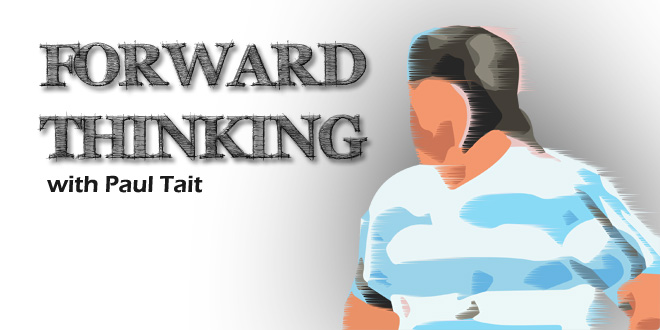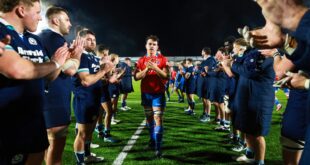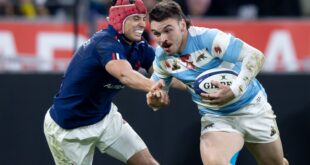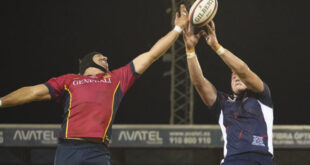Often the success or failure of an international coach comes down to how his team performed on the grandest stage of them all, the Rugby World Cup. Negative results in previous months or even years are often forgiven in exchange for delivering memorable victories when it matters most.
Differing Judgement
For some this means getting further than expected translates into a successful coach while for others it merely means getting an elusive pool victory. Kieran Crowley falls into the later category based on defeating Tonga in 2011 and drawing against the Japanese. Indeed, should Crowley get a win over Romania in the upcoming World Cup then a lot will certainly be forgotten and forgiven. So staggering is this given just how poor Canada have played throughout the past two years.
Winning World Cup games equates to distinction. John van der Giessen broke down to tears upon defeating Russia at the last World Cup while Manuel Carizza did so upon defeating Scotland. Entirely different circumstances with the former doing what the 2007 Eagles could not do at the World Cup and the latter knowing that a place in the Quarter Finals was all but secured.
At the same tournament Japan was winless with the draw against Canada being the best result. It meant John Kirwan was deemed a failure just like the case had been with him coaching Italy in the prior two World Cups. Winning two matches in 2003 and 2007 was a leap from no wins in 1999 but Italy was required to reach the Quarter Finals in order for the results to be deemed positive.
Harsh perhaps but it gets worse with Martin Johnson’s regime depicted as a failure despite England reaching the Quarter Finals in 2011 and, worse still, John Mitchell’s time as All Blacks coach falling into the same category even though New Zealand finished third in 2003.
Mitchell was gone while Bernard Lapporte remained French coach even though it was France that New Zealand defeated in the Bronze Final. His successor, Marc Lièvremont got France to the final in 2011 even though his team had been well beaten during his reign both before and during the World Cup. Despite the controversy losing 8-7 in the final meant he went down in history with a positive image.
Top 5 wins and Losses
Looking back Lièvremont had an extraordinary mix of highs and lows. As shown in the table below he genuinely delivered some extremely impressive results for the French public. They were, nonetheless, filtered out by some dreadful results.
| Lièvremont Five Highs | Lièvremont Five Lows |
| Defeating Wales in 2011 World Cup Semi Final | Losing against Tonga in 2011 World Cup Pool Match |
| Defeating New Zealand in Dunedin in 2009 | Losing 59-16 against Australia in 2010 |
| Defeating South Africa in Toulouse in 2009 | Losing 41-13 against Argentina in 2010 |
| Winning the 6 Nations Grand Slam in 2010 | Losing 42-17 against South Africa in 2010 |
| Defeating England in 2011 RWC Quarter Final | Losing against Italy in 2011 Six Nations |
His replacement, Phillipe Saint-André had far more experience coaching professional rugby and had done so both in the Aviva Premiership and Top 14. Lièvremont, in contrast, had coached only in the Pro d2. The change was welcomed but the former Sale Sharks and Toulon Head Coach is yet to achieve anywhere near the same list of highs as his predecessor.
For Saint-Andre the World Cup could change this. A failure to go far will see him remembered as an appalling coach, arguably among the worst of all time. His only win on the road of note was against an understrength Pumas side in 2012 with the professionals involved in the Rugby Championship prohibited from playing due to an agreement between the UAR and both the LNR and Premier Rugby.
| Saint-André Highs | Saint André Lows |
| Winning all games vs Scotland | Losing all games vs Wales |
| Defeating England 25-20 in RWC warm-up match | Wooden Spoon in 2013 Six Nations |
| Defeating Australia 29-26 in 2014 | Losing 50-23 against Australia |
| Defeating Argentina 49-10 in 2012 | Losing at home Argentina and Ireland in 2014 |
| Defeating Fiji 40-15 in 2014 | Conceding 55 points against England |
The comparison showcases that, overall, Lièvremont has done a far better job in winning both tournaments and matches against elite opposition. Saint-André’s Six Nations record standing as unforgivable – finishing 4th in 2012, 2014 and 2015 and 6th in 2013 with Lièvremont’s low of losing against Italy being replicated.
Picking just five lows is a tough task as leaving out losing 30-0 against New Zealand was required. Similarly, with all respect to Fiji including the November 2014 win in the top five speaks volumes of the current regime. Indeed Fiji has never defeated France.
The 2012 win in Tucumán over Argentina came a week after losing in Córdoba. That result was one of the highs of the career of former Pumas coach Santiago Phelan who kept his job based on Argentina reaching the Quarter Finals in 2011 and playing well before ultimately losing against New Zealand. His replacement in late 2013, Daniel Hourcade will retain his job regardless of how Argentina play at the World Cup.
| Hourcade Highs | Hourcade Lows |
| Defeating South Africa 37-25 in Durban in 2015 | Losing 40-6 against Wales in 2013 |
| Defeating France 18-13 in Paris in 2014 | Losing 41-31 against Scotland in 2014 |
| Defeating Australia 21-17 in Mendoza in 2014 | Losing 34-9 against Australia in 2015 |
| Defeating Italy 19-14 in Rome in 2013 | Losing 39-18 against New Zealand in 2015 |
| Defeating Italy 20-18 in Genoa in 2014 | Losing 33-31 against South Africa in 2015 |
Hourcade has won the confidence of his players and administrators by achieving results that Phelan could not. Away wins over France and South Africa were never within reach under Phelan and this has given the players belief unlike was the case prior to November tours under Phelan or the last World Cup.
Quite simply Hourcade has already been accepted as a successful coach by virtue of his wins. He is also benefited by having a friendly Pool at the World Cup with Georgia, Namibia New Zealand and Tonga being an easier task in finishing in the top two than was the case against England, Georgia, Romania and Scotland four years ago.
It is fair to suggest that the Top 5 vs Bottom 5 list sees Hourcade better off than both French coaches covered. In other words Hourcade need not reach the World Cup Final in order to be deemed more successful than Lièvremont. Moreover the losses under Hourcade are less acceptable under Saint-André which underlines the extent of his shortcomings as French coach.
However Argentina do perform at the World Cup it seems clear that the accomplishments of Horucade to date will mean that the bar is raised in the future. The different judgement at present will erode as expectations rise.
 Americas Rugby News Rugby news from across the Americas!
Americas Rugby News Rugby news from across the Americas!




